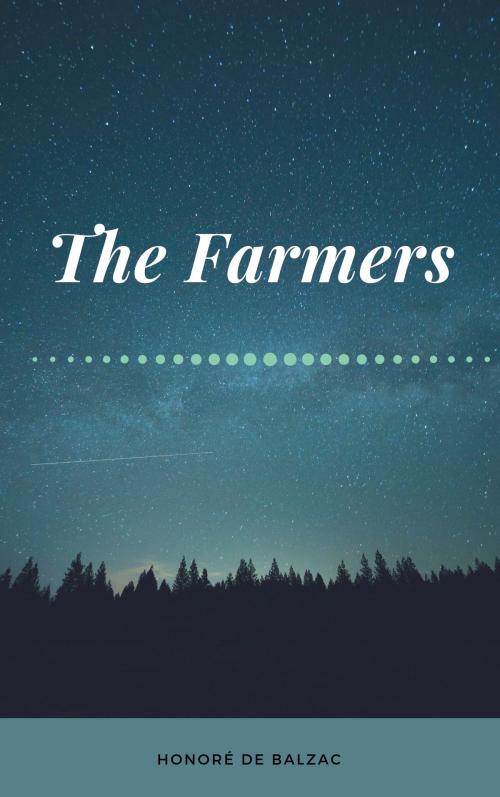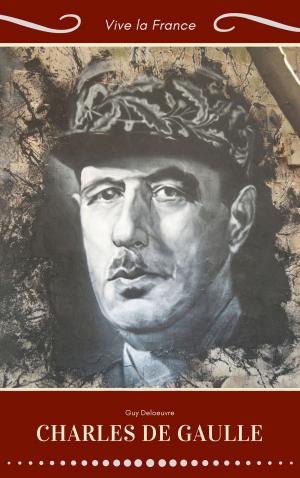| Author: | Honoré de Balzac | ISBN: | 1230003202234 |
| Publisher: | Guy Deloeuvre | Publication: | April 25, 2019 |
| Imprint: | Language: | English |
| Author: | Honoré de Balzac |
| ISBN: | 1230003202234 |
| Publisher: | Guy Deloeuvre |
| Publication: | April 25, 2019 |
| Imprint: | |
| Language: | English |
Decidedly, for the realistic 19th century authors, from Balzac to Maupassant and Zola, the peasants are depicted in a mostly negative way. But the highlight is Balzac's novel, "Les paysans", which is considered one of the most important in the "Comédie humaine". He worked on it for a long time (in his dedication, the author claims to have "for eight years, a hundred times left, a hundred times taken up this book, the most important of those I have decided to write") and draws here a dark portrait of the countryside under the Restoration, where the class struggle (small peasantry allied to the bourgeoisie from the peasantry against aristocracy) is fierce.
A former general of the Empire, of common-law origin (the peasants call him the "Tapessier"), the Count of Moncornet (nobility of the Empire), bought in Burgundy the Château des Aigues and the surrounding lands, not far from the small sub-prefecture of La Ville-aux-Fayes. To strengthen his recent nobility, the general married a descendant of the former aristocracy and dreamed of becoming a peer in France. He wants to make his estate a well-managed land and he rules authoritatively by hiring former Napoleon's soldiers as forest guards to help him fight traditional peasant practices, including the theft of wood from his forests, which the former owner, a famous singer, had authorized in order to have social peace.
But he faces the league of all those who lose, not only the poor peasants, but also the local notables, who dream of driving him away to take over his lands. The showdown will be fatal to the Michaud guard, murdered without his murderers being found. Montcornet, broken by this murder, felt threatened with death and decided to sell his estate. The latter was sold in small parcels, and the castle was destroyed.
The central idea is that the Revolution liberated uncontrollable and evil forces for society, and in passing, he scratches Jean-Jacques Rousseau several times considered as the person in charge: at the end of the book, Émile Blondet, discovering the decline of the Domaine des Aigues and its park which has become a refuge for the poor, exclaims: "Voilà le progrès ! This is a page from Jean-Jacques' "Social Contract"! ». Farmers are described here not only as rough, ignorant, but also brutal, alcoholic, amoral, and particularly hateful and resentful. It is the conservative Balzac that dominates here (the book scandalized Michelet), and contrasts with George Sand's idealized vision of the rural world.
Nevertheless, it seems that Balzac was very well informed about the Burgundian peasant revolts during the July Monarchy, which culminated in many killings of forest rangers. The contrast is breathtaking between the aristocratic society composed of the Countess of Montcornet, her friend the writer Blondet (whom she will marry for the second time), and Father Brossette, who sees his church completely deserted, and the castle life they lead, and the painting of the cabarets, a meeting place for farmers, while, in the shadows, the local notables, often from the peasantry, enriched during the Revolution, occupy the places that allow them to play a hidden role: the usurer Rigou and the mayors of the neighbouring municipalities Soudry and Gaubertin. Through marriage alliances, they are linked to administrative, judicial, police and local commercial staff. Against such opponents, hidden under the mask of respectability, Montcornet tried in vain to fight.
A novel that is probably unfinished, although it gives the illusion of a complete novel, "Les paysans", which would undoubtedly have been Balzac's longest novel, remains a monument. This is despite the author's lack of objectivity and blatant prejudices. The different social environments are described with his usual mastery, with a concern for significant detail and a relentless sense of observation. So, although not very attractive on the surface (especially for those who, like me, spent their childhood in the countryside), this novel arouses admiration and interest.
Decidedly, for the realistic 19th century authors, from Balzac to Maupassant and Zola, the peasants are depicted in a mostly negative way. But the highlight is Balzac's novel, "Les paysans", which is considered one of the most important in the "Comédie humaine". He worked on it for a long time (in his dedication, the author claims to have "for eight years, a hundred times left, a hundred times taken up this book, the most important of those I have decided to write") and draws here a dark portrait of the countryside under the Restoration, where the class struggle (small peasantry allied to the bourgeoisie from the peasantry against aristocracy) is fierce.
A former general of the Empire, of common-law origin (the peasants call him the "Tapessier"), the Count of Moncornet (nobility of the Empire), bought in Burgundy the Château des Aigues and the surrounding lands, not far from the small sub-prefecture of La Ville-aux-Fayes. To strengthen his recent nobility, the general married a descendant of the former aristocracy and dreamed of becoming a peer in France. He wants to make his estate a well-managed land and he rules authoritatively by hiring former Napoleon's soldiers as forest guards to help him fight traditional peasant practices, including the theft of wood from his forests, which the former owner, a famous singer, had authorized in order to have social peace.
But he faces the league of all those who lose, not only the poor peasants, but also the local notables, who dream of driving him away to take over his lands. The showdown will be fatal to the Michaud guard, murdered without his murderers being found. Montcornet, broken by this murder, felt threatened with death and decided to sell his estate. The latter was sold in small parcels, and the castle was destroyed.
The central idea is that the Revolution liberated uncontrollable and evil forces for society, and in passing, he scratches Jean-Jacques Rousseau several times considered as the person in charge: at the end of the book, Émile Blondet, discovering the decline of the Domaine des Aigues and its park which has become a refuge for the poor, exclaims: "Voilà le progrès ! This is a page from Jean-Jacques' "Social Contract"! ». Farmers are described here not only as rough, ignorant, but also brutal, alcoholic, amoral, and particularly hateful and resentful. It is the conservative Balzac that dominates here (the book scandalized Michelet), and contrasts with George Sand's idealized vision of the rural world.
Nevertheless, it seems that Balzac was very well informed about the Burgundian peasant revolts during the July Monarchy, which culminated in many killings of forest rangers. The contrast is breathtaking between the aristocratic society composed of the Countess of Montcornet, her friend the writer Blondet (whom she will marry for the second time), and Father Brossette, who sees his church completely deserted, and the castle life they lead, and the painting of the cabarets, a meeting place for farmers, while, in the shadows, the local notables, often from the peasantry, enriched during the Revolution, occupy the places that allow them to play a hidden role: the usurer Rigou and the mayors of the neighbouring municipalities Soudry and Gaubertin. Through marriage alliances, they are linked to administrative, judicial, police and local commercial staff. Against such opponents, hidden under the mask of respectability, Montcornet tried in vain to fight.
A novel that is probably unfinished, although it gives the illusion of a complete novel, "Les paysans", which would undoubtedly have been Balzac's longest novel, remains a monument. This is despite the author's lack of objectivity and blatant prejudices. The different social environments are described with his usual mastery, with a concern for significant detail and a relentless sense of observation. So, although not very attractive on the surface (especially for those who, like me, spent their childhood in the countryside), this novel arouses admiration and interest.















